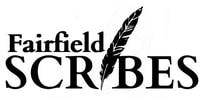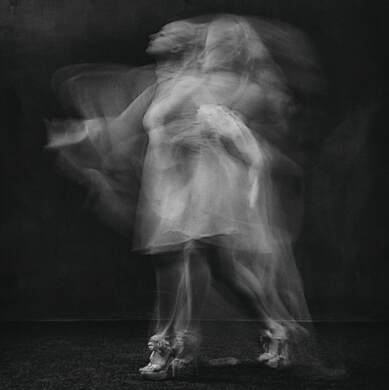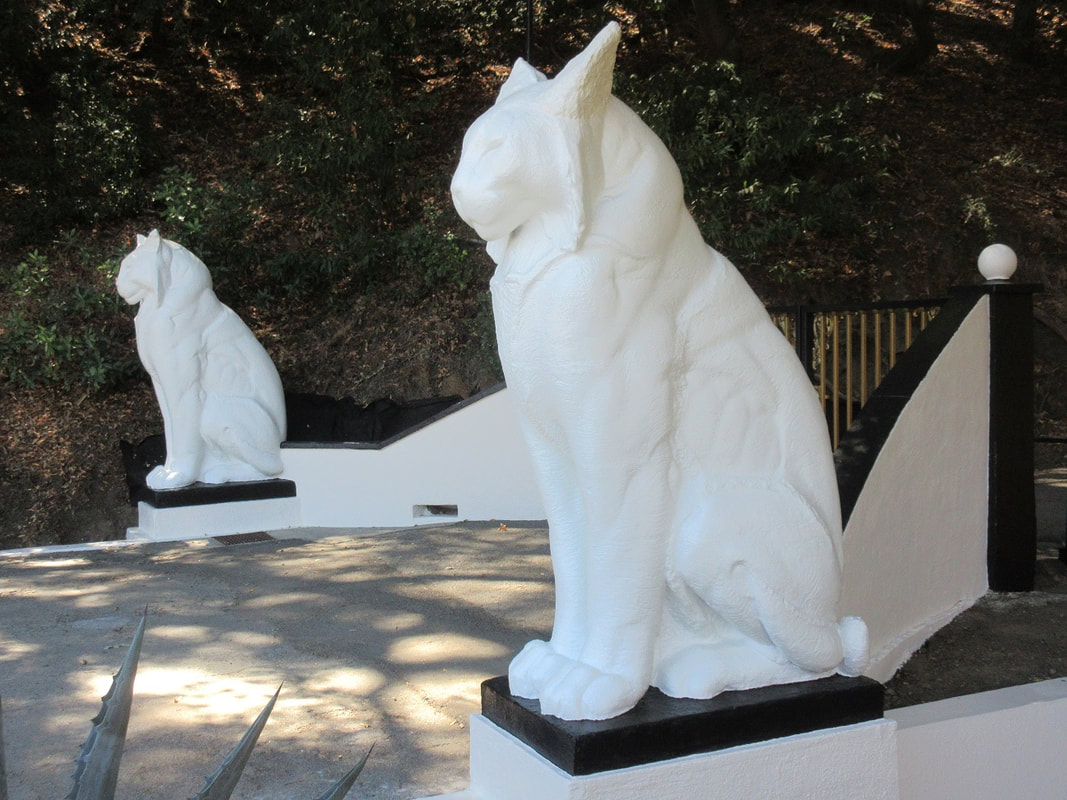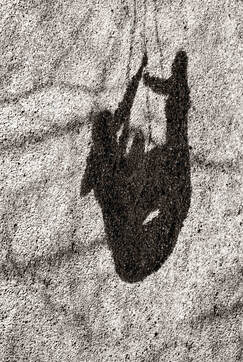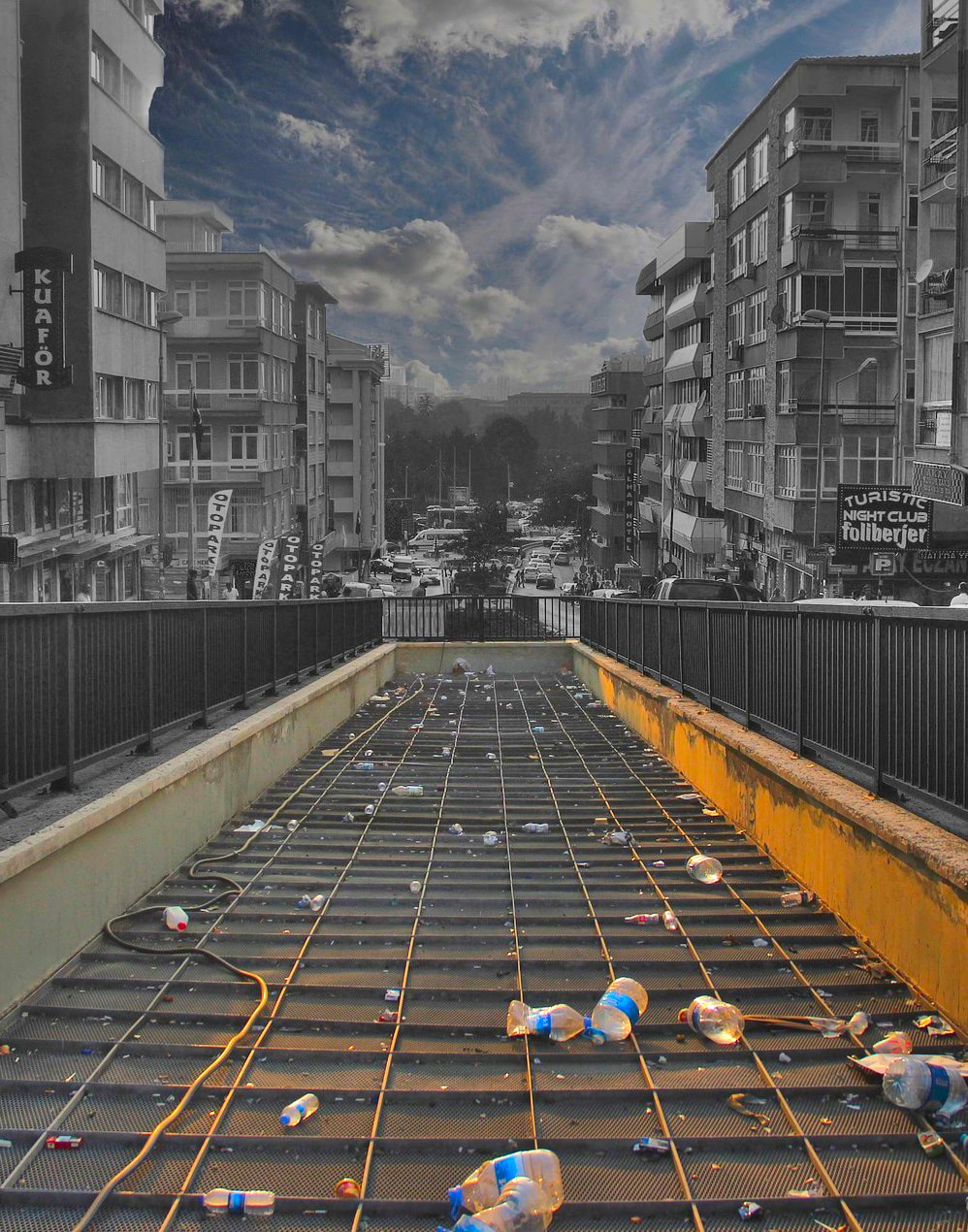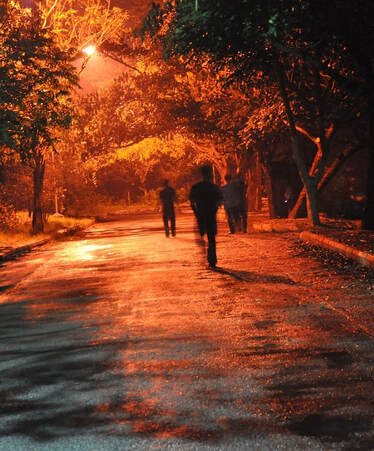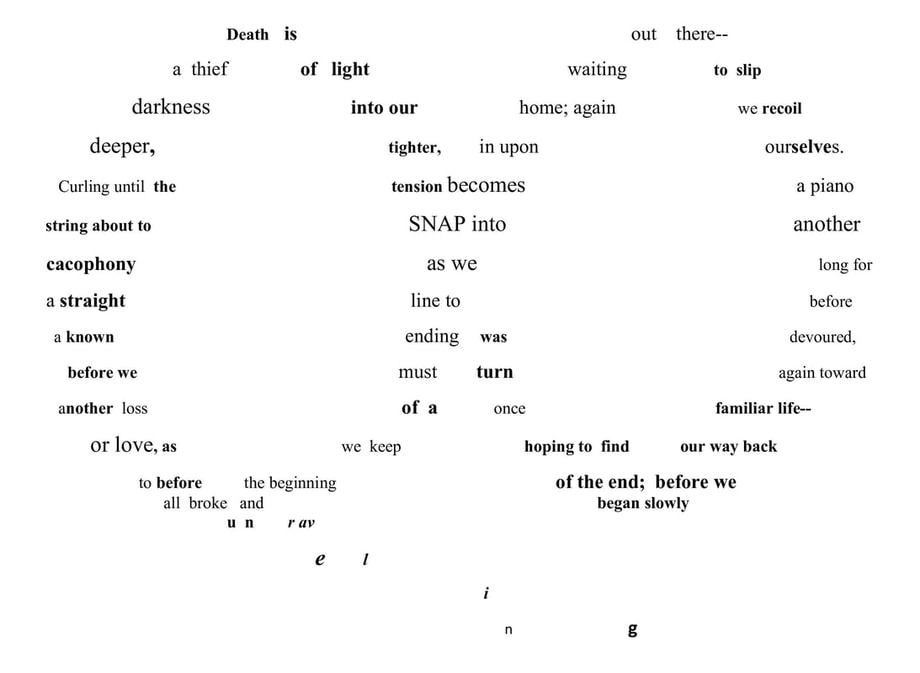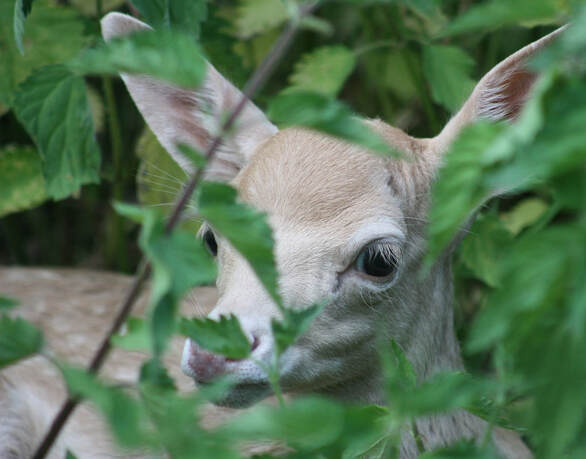ScribesMICRO
* * * Managing Editor: Edward Ahern * * *
* Submissions Editor: P.C. Keeler *
* Submissions Editor: P.M. Ray *
* Associate Editor: Alison McBain *
* Submissions Editor: P.C. Keeler *
* Submissions Editor: P.M. Ray *
* Associate Editor: Alison McBain *
Issue # 9
September 15, 2021
Featuring the short scribblings of:
* Sara Siddiqui Chansarkar * Mary Keating *
* Melissa Marie Keeping * Elizabeth Leyland *
* Marc Littman * Jody Rae * Niles Reddick *
* Matthew P.S. Salinas * Susan Thomsen * Linh Tran *
* Edward Ahern * P.C. Keeler * Alison McBain * P.M. Ray *
* Sara Siddiqui Chansarkar * Mary Keating *
* Melissa Marie Keeping * Elizabeth Leyland *
* Marc Littman * Jody Rae * Niles Reddick *
* Matthew P.S. Salinas * Susan Thomsen * Linh Tran *
* Edward Ahern * P.C. Keeler * Alison McBain * P.M. Ray *
Editor's Corner
In honor of September 14th's National Live Creative Day, we're giving our editors a chance to exercise their creativity and share a few stories and poems with you.
|
I walk alone in the night. Lively music and a warm light beckon to me from a tavern ahead. I enter and see a group in a circle dance, smiling and singing together. I join them, trying to imitate the steps and be one with them.
But my rhythm is off. The miasma of laughing faces swirls around me and I falter. The music that was once so inviting is now a strident cacophony that jars my ears. I flee back outside, resuming my walk. I allow myself a genuine smile where nobody can see. Safe and alone in the cold, bitter darkness. I grew up near
a two-cat place, the oldest town in California not birthed as a hatchery for cities. Cities progress: box store building blocks knocked over by urbanist toddlers, the Wild West mystique suffocated beneath the blooded remnants of new expansion. If we concrete our problems away we can ignore the wide open spaces that burn at the center of our hearts. In the rush of gold maybe we’ll find riches: cracked glass treasures laid over the skeleton of forgotten names. Maybe we’ll become a Diamondback lacking a tongue, lacking a mouth, lacking a voice. |
I remember towns.
Not suburbs, not even exurbs. No city core. Just a little knot of people living somewhere. Back when that worked. But then the Big Split came, and the cities feasted on young ambition. The remnants of the small towns withered and died old. Now a hundred megafarms make up Iowa, with one central office-barracks each, with three million urbanites in Des Moines. A scattering of stubborn loners here and there. And me, with ten miles of gleaming solar panels in every direction, powering the city, watching for alerts to demand maintenance. Alone on land, the light-house keeper. * * * Some epicures avoid comfort food as banal,
and processed meats as unhealthy, yet espouse dubious tasting items and extra work in order to reach the culinary outer limits where palatable approaches hateful. Although not hate-worthy some comestibles are too much work for relatively meager rewards. Persimmons and artichokes come to mind, and hand-ground coffee put into a French press. And chestnuts on a smoky fire with finger-burning efforts to un-hull. Some foods are hateful, despite the mantra that if it’s bad tasting it’s good for us. Capers come to mind, and kale. Pickle juice and haggis, some, but not all, animal organs, and never, ever, drink Fernet-Branca. |
Fiction
|
My Girlfriend's Sister by Elizabeth Leyland My girlfriend takes me to meet her sister, even though her sister doesn’t like gay couples. What’s more, the sister has said my girlfriend has no taste.
Terrific. We sit down at the sister’s table. A soufflé swells out of its round dish. Gruyère touches my tongue, as earth-sweet as a mountain pasture. Speckles of courgette murmur vegetable and mineral. Egg whites, whipped dry as a windswept plain, tangle with yolks, milk, flour—creamy, comforting. Black pepper, spicy and provocative. My girlfriend chops at her soufflé, talks about herself, and waves her fork about. I look at the sister and wonder if I could do better. * * * Elizabeth Leyland writes long and short fiction. She lives in the United Kingdom.
A Wake at America's Diner by Jody Rae I never take off my coat. The black window emanates winter on my elbow. Two friends from high school stare at me, wide-eyed, over cold coffee. Dabbing at whipped cream on my cocoa and taking dainty nips, I tell them everything. I never saw the other one’s face. It felt like vultures picking my bones clean.
The waitress refills their coffee, leaving a handful of creamers. One creamer rolls and rocks along the edge of the table. Missy rescues it from diving off. “Have you told Joel yet? Joel should know.” Joel should know I never took off my coat. * * * Jody Rae’s creative nonfiction essays appear in The Avalon Literary Review, The Good Life Review, and From Whispers to Roars. Her short story “Beautiful Mother” was a finalist in the Phoebe Journal 2021 Spring Fiction Contest. She was the first prize winner of the 2019 Winning Writers Wergle Flomp Humor Poetry Contest for her poem, “Failure to Triangulate.” Her work can be found at www.criminysakesalive.com.
Adrift Ashore by Linh Tran A boy has been swept out by the tide, no chance of rescue in sight. His desperate parents ask desperate questions that won’t bring him back.
Why do the waters hide his innocent body? Why does the wind blow him farther away? Why does he seem lost at sea if his arms wrap around their aging bodies still? If he had, say, run away, at least then they’d know. Find the body to find the person. Instead, here he is, staring at a dark bathroom mirror next to their master bedroom. There’s a body but no person in sight. * * * Linh Tran is a high school junior from the Seattle area with work published or forthcoming in Variant Literature and The Watershed Review.
Unfinished Stories by Matthew P.S. Salinas The unread books sat there on Lionel’s bookshelves. They were part of the sad story now. There was nothing else left to pack. His mother and father looked at each other while Jamie, Lionel’s younger brother, began to explore those books. Jamie figured maybe Lionel was hiding somewhere among the pages.
That would make sense. Lionel was always reading. Jamie was determined to find him hidden somewhere amidst all of those words scribbled upon the pages. Their mother began to weep. She realized Jamie was right. It made sense to search for Lionel amongst all of the other unfinished stories. * * * Matthew Salinas is an author from Illinois who writes short stories in all genres and poetry. He has two published works and is continuing to publish two more books by the end of the year. He lives with his fiancée Jordana and their two cats.
|
Three-Day Holiday Weekend by Niles Reddick Leck saw broken glass shattered on asphalt, spent fireworks in yards, trees, shrubbery, and roofs, and beer and soft drink cans along the curbs. He noticed a lone shoe, a smushed squirrel, and a hair weave in the road. A stop sign had been hit and bent like a palm tree in a hurricane. He knew cats and dogs suffered from post-traumatic stress disorder and cowered under beds while their owners had gas, their arteries pumped cholesterol, uric acid swelled for gout flares, and headaches pounded from beer consumed on the three-day holiday weekend.
* * * Niles Reddick is author of a novel, two collections, and a novella. His work has been featured in twenty-two anthologies, twenty-one countries, and in over four hundred publications including The Saturday Evening Post, PIF, BlazeVox, New Reader Magazine, Citron Review, and The Boston Literary Magazine.
Scales by Marc Littman Young Tommy escaped from the dreaded monotonous scales and threw himself into a wild boogie-woogie rendition that would have set musician Jerry Lee Lewis’ heart on fire. His tiny fingers danced over the baby grand piano’s ivory keys. He slipped off the bench and pounded the foot pedals. His body swayed and his eyes beamed. Exhausted, he finally slammed the low keys and took his bow.
Tommy’s mother, a disciplined concert pianist who knew the value of mastering the basics, shook her head. She flipped open the beginner’s piano sheet music. “Again,” she commanded. “One and two and three...” * * * Marc Littman's fiction has been widely published in online magazines and anthologies from 50-Word Stories to The Saturday Evening Post. He also writes novels and plays.
Love You to Death by Melissa Marie Keeping The groom snatched up her hands, gathering them in his. The officiant nodded and continued hurriedly with the next line of the script, barely glancing at the sheet of paper in his hands.
“I do,” the bride and groom answered together. No time for solos. The moaning in the distance grew louder and the officiant was forced to raise his voice above it. “I do,” they answered again. “You may now kiss the bride,” the officiant instructed. Their lips met hurriedly. The bride gathered her long, black dress in her fists just as the first zombies appeared at the top of the hill. * * * |
Poetry
Ouroboros Frayed
by Mary Keating
|
* * * Mary Keating is a disabled writer and lawyer with a solo practice in Darien, CT. Her writing appears in New Mobility magazine, Wordgathering, and Medium.com. Mary lives with her husband, Dan and their lab, Sunshine, in Connecticut.
An Hour at Night by Sara Siddiqui Chansarkar When I’m not an exhausted housekeeper
Not an acquiescent wife. Not a meticulous mother. Not a steadfast sister. Sixty minutes all of my own. My son’s 2B pencil in my hand. A worn, bookmarked Mary Oliver collection in my lap. Steam rising from a cup of tea on a cork-coaster. A pair of sherpa-slippers warming my gelid feet. No little hands grabbing my gown. No stubble grazing my skin. No dish to be rinsed. No fish to be batter-fried. An hour quiet as dawn, I’m a fawn, sheltering under word shrubs. * * * Sara Siddiqui Chansarkar is an Indian American writer. She was born and educated in India. Her work has appeared in SmokeLong Quarterly, Reflex Press, Flash Fiction Online, and elsewhere. She is an editor at Janus Literary and a reader-in-residence at SmokeLong Quarterly. More at https://saraspunyfingers.com. Reach her @PunyFingers.
Out of all the ways you could have went about this scenario by Susan Thomsen Is this the train to New Haven
You never know What’s your course? Someone just texted that they saw me in Miami G trains will replace F trains between Bergen and Stillwell Avenue You should not have said, “Here’s the thing” That’s not art Sometimes you gotta apologize You were one of my favorites from day one I made it obvious She just wants to sit up in the house all day Now I understand What does Americana mean? I know one thing, I’m not waiting twenty minutes Let’s go get a nice lunch somewhere Please, Papa *This is a found poem. Each line, including the title, is something I overheard in New York. * * * Susan Thomsen's photographs of street art can be found on Instagram at @susanthomsen03.
|
|
The Poets' Salon
If you're looking for more poetry, including a place to read your work, receive critiques, and explore poetic forms, check out The Poets' Salon. Two editors of ScribesMICRO, Edward Ahern and Alison McBain, run this free poetry workshop. Meetings take place on the second Saturday of every month from 10 a.m. to noon EST via Zoom. More info, including how to sign up for the poetry workshop, can be found on The Poets' Salon website or via Meetup. |
